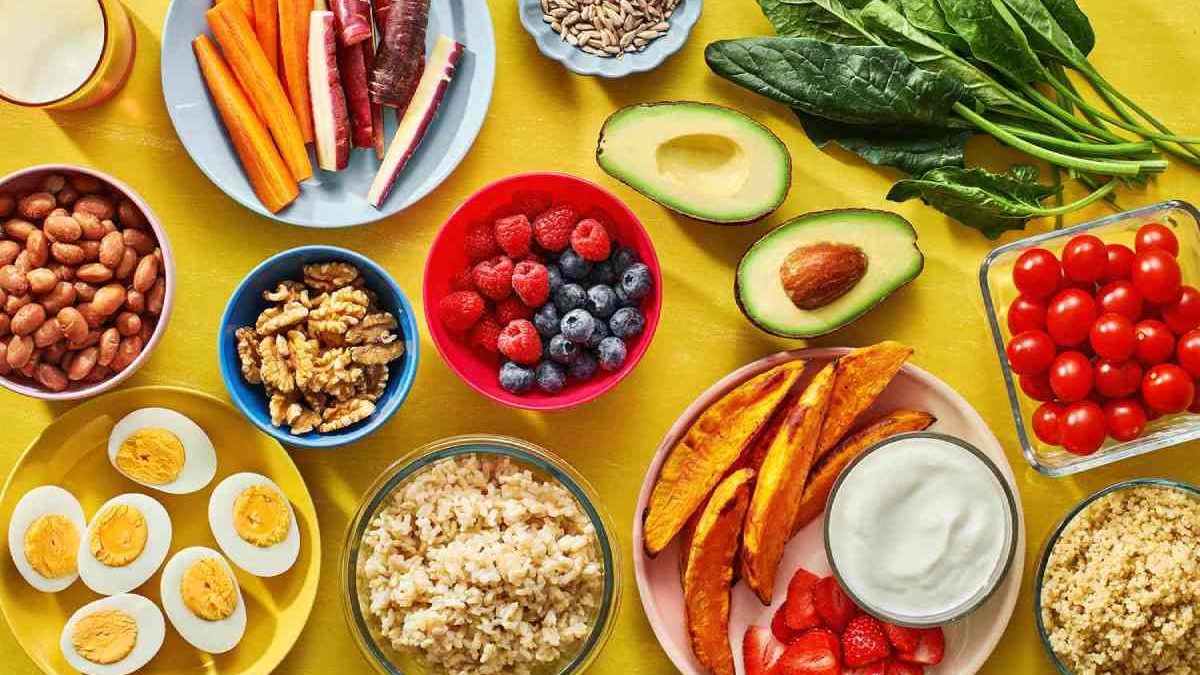Table of Contents
Is your Food Still Safe?
It has to be good enough to eat if it looks good, right? Not necessarily: If you don’t know how long you’ve stored food in your pantry or the back of your fridge, you could be one of the 48 million people who suffer from digestive problems due to foodborne illness each year.
Mould and rot are sure symbols that food is past its prime, but food can be dangerous before noticing such apparent signs. If you’re guilt-ridden of occasionally ignoring food expiration dates, educate yourself on food safety guidelines and reconsider what you’re willing to eat to avoid digestive issues.
Expired or Not?
Knowing exactly how long it is kept without spoiling is not easy, as the best before date printed on it is only one part of safety. The temperature at which you store and make can affect your risk of foodborne illness, as can how you handle food before it reaches your kitchen.
Here’s How to Help you Decide if the Food Product you’re looking at, or Smelling or Tasting, is Safe to Eat
Know Your Food Get a basic understanding of what’s in your food. “In general, high-protein products spoil faster than foods high in sugar or sodium. That’s why these products in food preservation techniques lock in moisture, or water, in nutrition.
Firstly, follow its safety temperature guidelines. At room temperature, bacteria multiply rapidly, causing them to spoil more quickly. “Bacteria need food (protein or carbohydrates) to grow and reproduce and water. For this reason, you should set your refrigerator below 20°C and heat food to temperatures above 60°C. These extremes of cold and heat prevent bacteria from multiplying. Frozen foods should store at 32°F or below.
Secondly, Take care of your nose. Most people can smell spoiled or rotten, especially when too much bacteria or mould. Trust your sense of smell as your food safety expert. But don’t be overconfident; even good-smelling food can go wrong; look. Throw it out if you see noticeable discolouration in spoiled foods, like green meat or bruises on bread. Changes in consistency are also a sign of spoilage, such as B. Lumpy milk. Other warning signs include packages with obvious openings or bulges and dented cans leaking unopened, warped, or rusting along a seam.
Keep all dining rooms clean. Regularly clean and disinfect surfaces where food is stored and prepared.
It’s a Date: Knowing the Limits of Food Storage
Follow these essential storage tips. Use a marker or sticky tags to date foods as you store them:
Eggs
Store in the original packaging in the refrigerator and consume within three weeks. Discard any that are broken or cracked.
Seafood
Refrigerate on time if planning to use within two days. Otherwise, freeze until ready to use.
Ground Beef
Store it in the refrigerator for a day or two, in the freezer for three to four months.
Steaks, Chops, and Roasts
Store in the freezer for three to five days, in the freezer for four to six (ribs), 6 to 12 (steaks), and 4 to 12 (roasts) months.
Fresh birds
Store in the refrigerator for a day or two in the freezer for nine months to a year.
We boiled meat or poultry—store in the refrigerator for three to four days, in the freezer for two to six months. Fruits and vegetables. It’s hard to say how long fruits or vegetables will keep fresh, as it can largely depend on how they treat before you bring them home. Meanwhile, Preserve fruits and vegetables fresh longer by storing them in the refrigerator; many freezes well for upcoming use. Always wash-down fruits and vegetables before eating or serving them.
Golden Rules for Hygienic Food Preparation
Preparation of food for several hours before consumption, along with storage at temperatures that favour the growth of pathogenic bacteria and the formation of toxins;
- undercooking or reheating foods to reduce or eliminate pathogens.
- cross-contamination, and
- People with poor personal food-handling hygiene.
The Ten Golden Rules address these mistakes can reduce the risk that foodborne pathogens will contaminate, survive or multiply. These are the Ten Golden Rules:
1. Choose foods treated for hygienic purposes
2. Cook food well
3. Consume cooked food immediately
4. Carefully store cooked food
5. Reheat cooked food thoroughly
6. Avoid contact between raw and cooked food
7. Wash your hands often
8. Keep all kitchen surfaces scrupulously clean
9. Keep food away from insects, rodents, and other animals
10. Use pure water
Prevention of Food Poisoning
To prevent food poisoning, do the following when preparing food:
- Wash your hands often and always thoroughly before cooking or cleaning. Always wash them after touching raw meat.
- Clean plates and cutlery that have come into contact with raw meat, poultry, fish, or eggs.
- Use a thermometer when cooking. Cook meat to a minimum of 71°C (160°F), chicken to a minimum of 73.8°C (165°F), and fish to a minimum of 62.7°C (145°F).
- DO NOT place cooked meat or fish on the same plate or container as raw meat unless the container has washed.
- Refrigerate any perishable food or leftovers within 2 hours. Store the refrigerator at approximately 4.4°C (40°F) and the freezer at or below -18°C (0°F). DO NOT eat meat, chicken, or fish that has been refrigerated raw for more than 1-2 days.
- Cook frozen food for the time recommended on the package.
- Do not use expired, food with broken seals, or dented or punctured cans and don’t eat foods that have unusual odours or taste bad.
- Do not drink water from untreated streams or wells. Drink only treated or chlorinated water.
Further Steps are:
- If you’re caring for young children, wash your hands often and dispose of diapers carefully, so bacteria don’t spread to other surfaces or other people.
- When storing food at home, follow proper storage techniques to avoid botulism.
- Do not give honey to children under one year old.
- Don’t eat wild mushrooms.
- If you go to places where contamination is more likely, only eat hot, freshly prepared food. Do not eat raw vegetables or peeled fruits. Drink water only when it’s boiled.
- DO NOT eat seafood if exposed to red tides.
If you are expecting or have a compromised immune system, DO NOT eat soft cheeses, especially those imported from countries other than the United States.
Measures for the Correct Consumption
The Ministry of Health reports on preventive measures for food security. The safety of items is the guarantee that it will not cause harm to the consumer when it is prepared or consumed and according to the use for which it intends.
Therefore, the Health Portfolio recommends:
- Wash your hands before cooking and often during preparation.
- Wash your hands after going to the toilet.
- Protect kitchens from insects, pets, and other animals
- Store it in closed containers.
- Raw foods (chicken, meat, and fish) can contaminate with microorganisms transmitted to other foods, so it is necessary – Always Separate Raw Foods from Cooked and Ready-to-Eat Foods.
- Store in separate containers to avoid contact between raw and cooked.
- It is remembered that proper cooking kills almost all harmful organisms. To do this, make sure that all parts of the cooked food reach at least 70 ° C.
Proper reheating also kills bacteria that grow on food storage. That’s all you need, comrade:
-
- Reheat well-cooked food.
- Cook foods such as soups and stews to make sure they reach 70 ° C.
- For red meats and chicken, make sure the juices are clear and not pink. For extra attention, the use of a thermometer recommend.
Besides, some microorganisms could multiply fast if kept at room temperature. Counter the bacteriological growth, it must be kept below 5 ° C and above 60 ° C; in this way, the microorganisms stop or slow down their progress. Therefore, the Ministry recommends:
-
- Do not leave them at room temperature for more than 2 hours. Do not store food for a long time, even in the refrigerator.
- Thawing food at room temperature is not recommended.
Finally, we need to wash it with clean water and a bar, leading to different types of bacteria and harmful chemicals. Peel a squash, grate it and crush the juice. Reduce the danger.
You Need to Know:
-
- Choose fresh and healthy foods.
- For your safety, choose processed foods such as pasteurized milk.
- Wash fruits and vegetables, specifically if eaten raw.
- Do not use the packages after the deadline.
Conclusion
Cleanliness and awareness are the secrets to good food security. Finally, You can reduce your risk of digestive problems due to food poisoning by paying attention to how long foods are in your home and how they look, smell, and taste when you are about to eat them.


